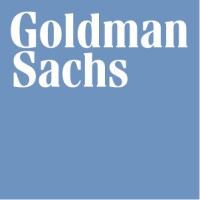Software Engineer Interview Experience - New York, New York
Process
The overall interview process was disappointing. Goldman Sachs often states, "We want to be a tech company and attract top tech talent!" However, coming from a leading tech company, they are far from achieving this. Below are red flags for those considering a move from companies like Google, Amazon, Microsoft, or Facebook. This was the only onsite interview experience I've had that prompted me to end it early due to a negative reaction.
Red Flags:
-
Three phone screens and an early day of on-site interviews. Typically, I've experienced two phone screens at most, and often just one suffices. One phone screen consisted of rapid-fire CS trivia about merge sort and Java GC—topics irrelevant to daily problem-solving and certainly not something Google would ask. The on-site interviews began at 10 AM and concluded at 3 PM (they would have extended to 4 PM had I not left), and the jet lag from the West Coast was considerable.
-
Each interview felt like a "good cop, bad cop" dynamic. There was always one pleasant or neutral interviewer and one aggressive individual who would interrupt the conversation flow. They constantly interrupted, offered no smiles, occasionally belittled my answers, and became visibly upset if I asked them to repeat a question. One interviewer stated my approach was incorrect, only to offer that same approach as a hint minutes later. During a casual discussion on full-stack versus back-end development with one interviewer, the "bad cop" abruptly intervened, stating we needed to move on. The "good cop" then became withdrawn, displaying body language that suggested prior reprimands and a need to perform better for approval. He remained silent for the rest of the interview. I also recall one interviewer arriving five minutes late, causing visible distress in the other interviewer, as if it were a catastrophic event. This level of sensitivity was absent at Bloomberg, suggesting it's not solely an East Coast cultural trait.
-
The interview room offered a view of the open-office layout, reminiscent of what you might work in. It evoked the impression of an executive prioritizing efficiency over employee well-being, envisioning desks packed like "corporate sardines" with minimal interaction. While acknowledging the expense of NYC real estate and modern office designs like Amazon's ultra-wide monitors, witnessing rows of employees, some of whom appeared sedentary throughout my visit, was off-putting. It clearly indicated Goldman Sachs' adherence to traditional office styles.
-
The lunch experience was peculiar. During lunchtime, a voucher was presented with minimal interaction, and the individual left without further communication. The lack of emotion was striking. Although my intuition urged me to leave, I chose to remain to avoid a hasty decision. I ate a PB&J sandwich in solitude, which was the best item available.
-
System design retrospectives felt more like interrogations. While I don't mind system design questions, the "retrospectives" involving my past projects felt like an aggressive grilling session. Questions like, "Why didn't you just do this?? Why didn't you do that???" were persistent. Despite a potential curiosity for input, the combination of stoic accents and a lack of any positive affirmation made it clear I did not wish to work with these individuals. This was the final straw.
-
In 2018, instead of a standard expense system, I was required to email Excel files containing my bank account information for reimbursement. This process took nearly three months. Such an antiquated system is not a good look for a company aspiring to be tech-focused, though it might be acceptable for a traditional investment bank.
-
Miscellaneous Red Flags: The receptionists were curt. The hiring manager repeatedly interrupted me during the phone screen. While diversity in accents is positive, it sometimes hindered clear communication during interviews. Another interview featured rapid-fire CS trivia, which felt redundant given the phone screen, especially with overlapping content. Questions about work-life balance were met with evasive responses like, "Oh, it just matters that you get the work done." This generic answer typically indicates a company that doesn't prioritize work-life balance.
Questions
LeetCode Style Question and System Design
Interview Statistics
The following metrics were computed from 63 interview experiences for the Goldman Sachs Software Engineer role in New York, New York.
Success Rate
Goldman Sachs's interview process for their Software Engineer roles in New York, New York is very selective, failing most engineers who go through it.
Experience Rating
Candidates reported having good feelings for Goldman Sachs's Software Engineer interview process in New York, New York.
